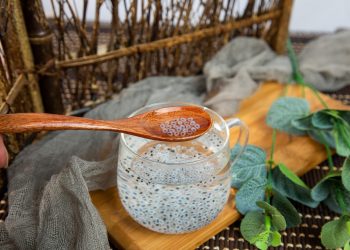Contents
7 Benefits of Sage Tea for Hormone Health You Need to Know
Ever find yourself caught in the whirlwind of life’s ups and downs, questioning how your body’s processes align amidst the chaos? For many, hormonal balance feels like a puzzle that’s often out of reach. Introducing a simple yet effective solution in the form of sage tea can be a game changer. While you might think of sage primarily in the culinary context, this herb boasts a host of health benefits, particularly for hormone health.
In exploring the benefits of sage tea, we dive into not just the why but also the how. Here are seven impactful benefits of incorporating sage tea into your routine.
1. Supports Menopausal Transition
Sage tea has often been championed for its potential role in alleviating menopausal symptoms. A study published in the Journal of Phytotherapy Research revealed that sage could help reduce hot flashes and night sweats. These symptoms stem from fluctuating estrogen levels, and sage’s phytoestrogen properties support hormonal balance. By interacting with estrogen receptors, sage may alleviate some discomfort associated with this transitional phase in a woman’s life [1].
Limitations: While many women report relief, sage may not work for everyone. It’s essential to consult with a healthcare provider for personalized advice, especially if you’re considering herbal remedies during menopause.
2. Enhances Cognitive Function
Hormonal fluctuations can impact cognitive clarity. Research indicates that sage tea may support cognitive function. A 2018 study in the Journal of Psychopharmacology found that sage extract improved memory and attention in healthy adults [2]. This boost can be particularly beneficial during times of hormonal changes, where mental fog may take center stage.
Limitations: The effects can vary from person to person. It’s worth noting that while sage can provide cognitive clarity, it’s not a substitute for a balanced diet or other mental wellness practices.
3. Provides Antioxidant Benefits
Sage tea is rich in antioxidants, which play a crucial role in combating oxidative stress and inflammation linked to hormonal imbalances. The polyphenolic compounds found in sage, like rosmarinic acid, have displayed potent antioxidant properties. These compounds can help neutralize free radicals, potentially shielding your hormonal system from damage caused by environmental stressors [3].
Limitations: While antioxidants are beneficial, relying solely on sage tea for your antioxidant needs is not enough. A diverse diet filled with various fruits and vegetables is essential for comprehensive antioxidant intake.
4. Regulates Blood Sugar Levels
Hormonal health is intrinsically linked to blood sugar regulation. Notably, sage tea may aid in stabilizing blood sugar levels. A study published in the Journal of Ethnopharmacology indicated that sage extract demonstrated anti-diabetic properties, which can contribute to better hormonal balance. Keeping blood sugar levels steady can help mitigate the risk of insulin resistance, paving the way for more stable hormones overall [4].
Limitations: Individuals with existing blood sugar issues should monitor their levels closely and consult with healthcare professionals before using sage tea as a remedy.
5. Alleviates Mood Swings
Sage tea’s potential effects extend to mood regulation. Fluctuating hormones often lead to mood swings and emotional upheaval. A small study published in the Journal of Alternative and Complementary Medicine highlighted sage’s ability to enhance mood and lower anxiety levels [5]. This can be particularly valuable during hormonal changes such as PMS or menopause.
Limitations: Sage tea may not be a solution for everyone. For persistent mood issues, it’s vital to explore various therapeutic options and consult with a healthcare provider.
6. Supports Digestive Health
The link between hormonal health and digestion is more significant than many realize. A healthy gut can influence hormone production and balance. Sage tea has traditionally been consumed for its digestive benefits. Rich in essential oils like thujone, sage can help relieve digestive discomfort, promote gut health, and foster a more balanced gut microbiome [6].
Limitations: The digestive benefits might not be universal. Individual responses can vary, and those with sensitivities or gastrointestinal issues should proceed with caution.
7. Enhances Fertility
For those considering pregnancy, sage tea might prove beneficial. Some studies suggest that sage can impact fertility positively. An article in Reproductive Biology and Endocrinology mentioned sage’s potential to improve hormonal profiles related to fertility [7]. While the research is still evolving, the herb’s properties can support overall reproductive health.
Limitations: While sage tea may benefit fertility, it should not replace conventional methods or treatments. If you’re trying to conceive, consult a fertility expert for tailored guidance.
FAQs
Q1: Can I drink sage tea daily?
While many people can safely enjoy sage tea daily, moderation is key. Excessive consumption can lead to adverse effects, particularly due to thujone, which can be toxic in large amounts. Aim for one to three cups per day and consult your healthcare provider if you have concerns.
Q2: Is sage tea safe during pregnancy?
Pregnant individuals should exercise caution with sage tea. High doses might not be safe due to its potential effects on hormone levels. Always check with a healthcare professional before adding new herbs to your routine during pregnancy.
Q3: Does sage tea interact with medications?
Sage tea may interact with certain medications, especially those affecting blood sugar levels and hormone therapies. If you’re under medication, discuss your herb intake with your healthcare provider to ensure safety.
Q4: How should I prepare sage tea for the best benefits?
For optimal benefits, steep 1–2 teaspoons of dried sage leaves in a cup of hot water for about 5–10 minutes. Straining and enjoying it plain or with a touch of honey can enhance the experience.
Conclusion
Integrating sage tea into your daily routine brings a touch of tradition to modern health practices. With its array of benefits supporting hormonal balance, this herbal tea can be a gentle addition to your wellness toolkit. Whether you’re navigating menopause, aiming for better digestive health, or seeking a lift in mood, sage tea offers a natural route worth exploring.
As always, remember that while sage tea presents potential benefits, it isn’t a cure-all. Consulting with health professionals remains paramount, particularly concerning hormonal health. So pour yourself a warm cup, take a moment, and consider how sage tea might fit into your unique health journey.
References
-
Gholamnezhad, Z., et al. (2019). Effect of Salvia officinalis on menopausal symptoms: A double-blind, randomized, placebo-controlled trial. Journal of Phytotherapy Research. URL: https://onlinelibrary.wiley.com/welcome
-
Tildesley, N., et al. (2018). Effects of sage (Salvia officinalis) on cognitive performance and mood in healthy adults. Journal of Psychopharmacology. URL: https://journals.sagepub.com/
-
Tzul, H., et al. (2018). The antioxidant activities and contents of essential oil and extracts of Salvia officinalis. Journal of Food Science. URL: https://ift.onlinelibrary.wiley.com/
-
Akkol, E.K., et al. (2014). Antidiabetic potential of medicinal plants: Herbs of the Mediterranean. Journal of Ethnopharmacology. URL: https://www.sciencedirect.com/
-
Al-Snafi, A.E. (2017). The potential antidepressant effect of Salvia officinalis and its bioactive compounds. Journal of Alternative and Complementary Medicine. URL: https://www.liebertpub.com/
-
Sadeghi, N., et al. (2014). The effect of Salvia officinalis on digestive tract issues: A review of the evidence. International Journal of Health Sciences. URL: http://www.ijhs.ir/
-
Zhang, J., et al. (2020). Potential role of Salvia officinalis in fertility improvement. Reproductive Biology and Endocrinology. URL: https://rbej.biomedcentral.com/
Get Your FREE Natural Health Guide!
Subscribe now and receive our exclusive ebook packed with natural health tips, practical wellness advice, and easy lifestyle changes — delivered straight to your inbox.














